You may be wondering, do chia seeds go bad? How long do they last? How do you store them to extend their shelf life? In this article, I explain how long chia seeds last, how to know if they have gone bad, and how to store them to extend their shelf life.
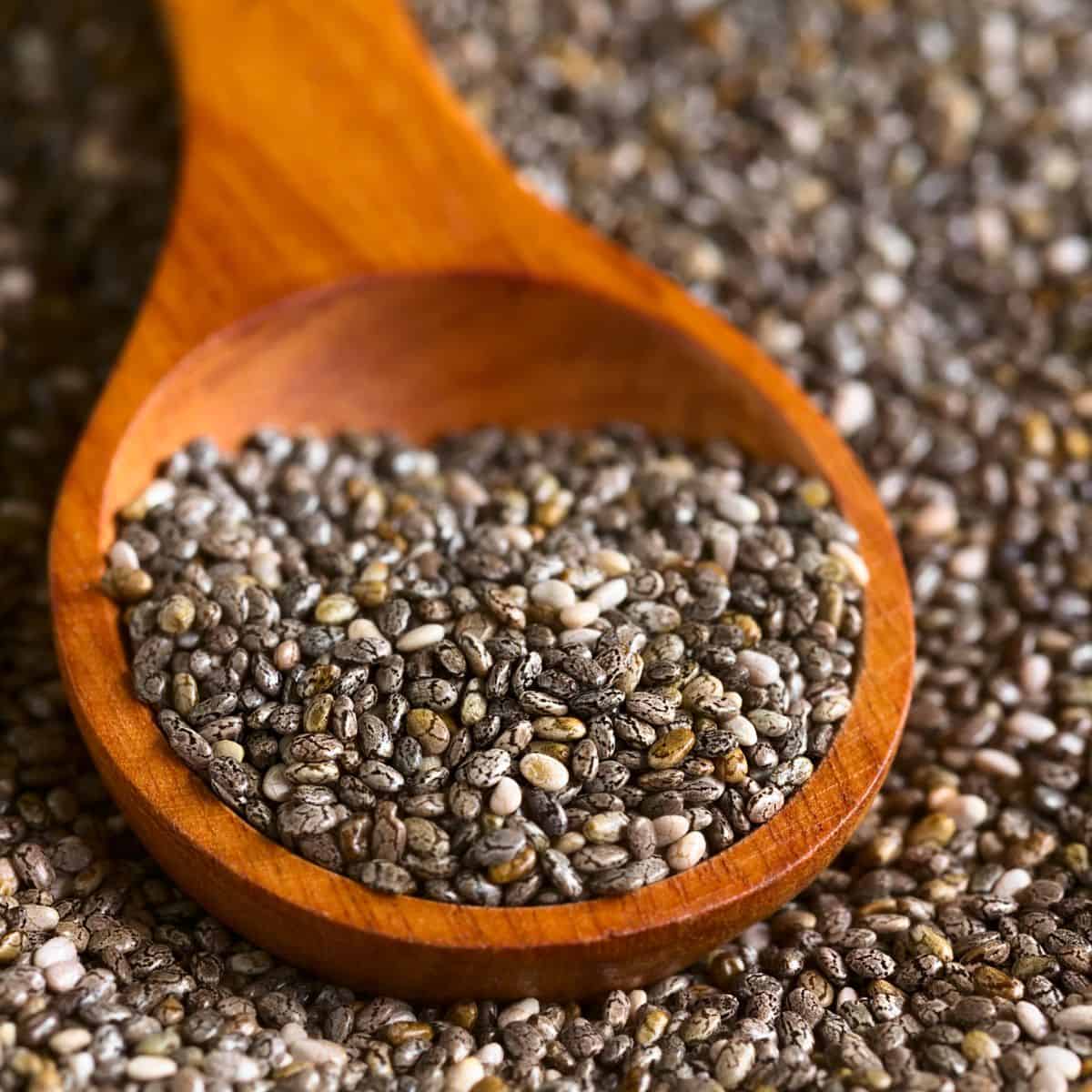
Chia seeds are a great source of omega-3 fatty acids, antioxidants, fiber, and protein. They have a comprehensive nutritional value and are easy to add to your favorite recipes throughout the day. Add them to your oats and smoothies, make them into a vegan egg substitute, or create a delicious chia pudding. However, they often come in large bags and take a while to use up. This leads to a common question: Do chia seeds go bad?
Yes, chia seeds do go bad. Read on to find out how long chia seeds last, how to tell that they’ve gone bad, and how to store them to extend their shelf life.
Jump to:
- Do Chia Seeds Go Bad?
- How Do You Tell if Chia Seeds Are Bad?
- What Bugs Can Infest Chia Seeds?
- How To Recognize Mold In Chia Seeds?
- Is It Safe To Eat Expired Chia Seeds?
- How Long Do Chia Seeds Last?
- How To Store Chia Seeds to Keep Longer
- Can You Freeze Chia Seeds?
- Possible Side Effects of Eating Bad Chia Seeds
- FAQS
- Summary
- Chia Seed Recipes!
- Resources
Do Chia Seeds Go Bad?
Yes, chia seeds do eventually go bad. Chia seeds are a rich source of antioxidants. As a result, this helps to extend their shelf life. Chia seeds will last for up to 5 years! Your bag of chia seeds should have a “Use-By” date. This will give you a general idea of how long your chia seeds will last.
Remember that the date your chia seeds are packaged and you buy them off the shelf could be several months or more different. When calculating how long your chia seeds are good for, go by the date on the package, not the date you purchased the seeds.
How Do You Tell if Chia Seeds Are Bad?
There are a few tell-tale signs that the shelf life of chia seeds has been reached. This includes turning rancid, bug infestation, or mold. If, for any reason, your seeds don’t look right, they probably aren’t, and you should toss them.
They’ve Turned Rancid: Since chia seeds have a long shelf life, your seeds will likely not go rancid before you have a chance to finish them. However, if they begin to smell or form mold, toss them out immediately.
Infested With Bugs: Your chia seeds can become infested with bugs. This is because bugs and other pests tend to be attracted to cool, dark places, such as your pantry. If you notice bugs, eggs, or any other type of pests have invaded your bag of chia seeds, throw them out immediately.
Mold and Moisture: If your chia seeds become wet or moist inside the bag, they will develop mold. If this happens, consider your chia seeds done for, and throw them out.
Seeds Lumped Together: One telltale sign that your seeds have turned is that they will lump together. If the seeds stick to the container’s side or lump together in the bag, they are either rancid or beginning to mold.
Slimy: If your seeds feel slimy, they have gone bad.
Bitter Taste: Chia seeds have a neutral flavor. If your seeds taste bitter, they are no longer good to eat.
What Bugs Can Infest Chia Seeds?
Flour beetles, such as the red flour beetle (Tribolium castaneum) and the confused flour beetle (Tribolium confusum), are known to infest stored grains and seeds, including chia seeds. They can contaminate the seeds with their presence and waste.
Weevils, such as the granary weevil (Sitophilus granarius) and rice weevil (Sitophilus oryzae), are small beetles that can infest various grains and seeds. They lay eggs inside the seeds, and the larvae feed on the internal contents, leading to contamination.
Indian meal moths (Plodia interpunctella) are common pantry pests that can infest chia seeds. The larvae of these moths feed on the seeds, and their presence can lead to contamination and a foul odor.
How To Recognize Mold In Chia Seeds?
Look for any discoloration or unusual spots on the chia seeds. Mold can appear as fuzzy patches, dark spots, or irregular colors. If you see anything that looks different from the normal color of chia seeds, it could be a sign of mold. In addition, mold often produces a musty or unpleasant odor. If your chia seeds have a strange or off-putting smell, it might indicate the presence of mold. If you suspect mold or are unsure about the quality of your chia seeds, it’s better to err on the side of caution and discard them to avoid potential health risks.
Is It Safe To Eat Expired Chia Seeds?
You can eat your chia seeds past expiration if they look and smell normal. While you should generally follow the expiration date on your bag of chia seeds, if you don’t notice any signs that they have gone bad, such as mold, moisture, bugs, or strange smell, then it is probably safe to continue to use them.
Your seeds will not suddenly turn bad. The “Use-By” date generally estimates how long they should be kept, but they will not turn bad overnight. It will take weeks or more for them to turn for the worse. Always use your best judgment when it comes to whether you believe they are safe for consumption. If something doesn’t look or smell right, it probably isn’t.
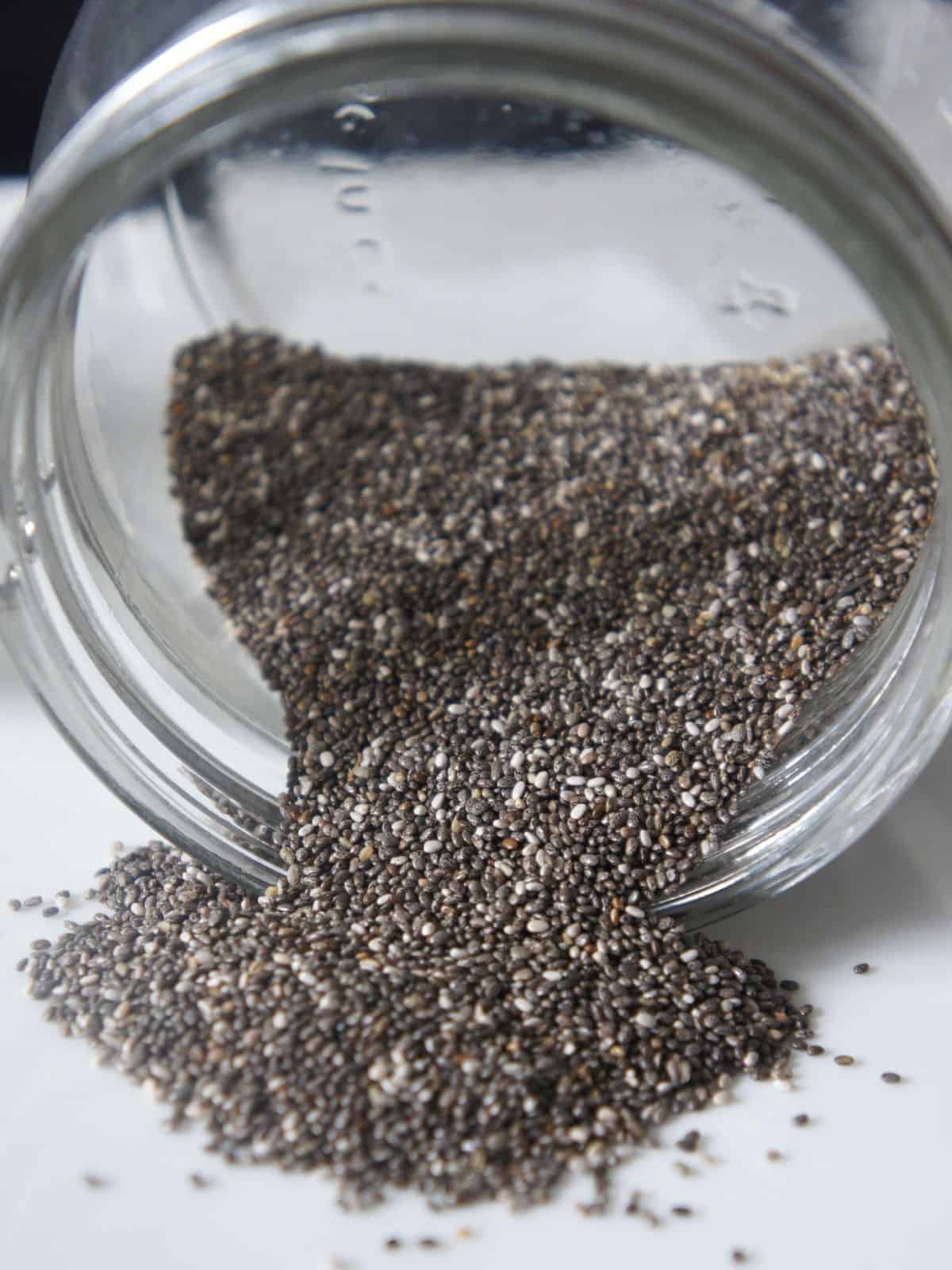
How Long Do Chia Seeds Last?
Chia seeds can last up to 5 years if kept at room temperature in a cool, dark, dry place like your pantry. However, it is essential to note that once you use those chia seeds in a recipe, the food will not be suitable for that same amount of time.
- Chia seeds can be good for up to 5 years but are best if used within 1 year.
- Chia flour is best if used within six months but can be good for up to 1 year.
- Chia pudding is best within three days when kept in the refrigerator, but it can be suitable for up to 5 days.
See the chart below for more specifics.
| Type of Chia Seeds | Pantry | Fridge | Freezer |
| Fresh | Best within 1 yr | Best within 3 yrs | Best within 5 years |
| Soaked (Chia Gel) | N/A | 3 to 5 Days | Up to 3 Months |
| Chia Pudding | N/A | 3 to 5 Days | Up to 3 Months |
| Chia Four | Best within 6 months | N/A | N/A |
How To Store Chia Seeds to Keep Longer
There are three keys to prolonging the shelf life of your chia seeds. Keep them in an airtight container in a cool, dry, dark place. Do not expose them to direct sunlight.
Store in a Sealed Container: After you buy your chia seeds, transfer them from the bag to an airtight storage container. I prefer clear glass containers, but you can also use plastic sealable containers. This helps you see if there are any changes to the food and retains freshness.
Keep the Container Sealed: Be sure that the container you store your chia seeds in is completely sealed. When air enters the container, it can speed up the process of rancidification.
Avoid Spooning: When using the chia seeds, avoid using a spoon to scoop them out of the container, as you can cross-contaminate the seeds and speed up the rancidification process. Instead, pour the seeds into your recipe, or use a clean spoon free of dust.
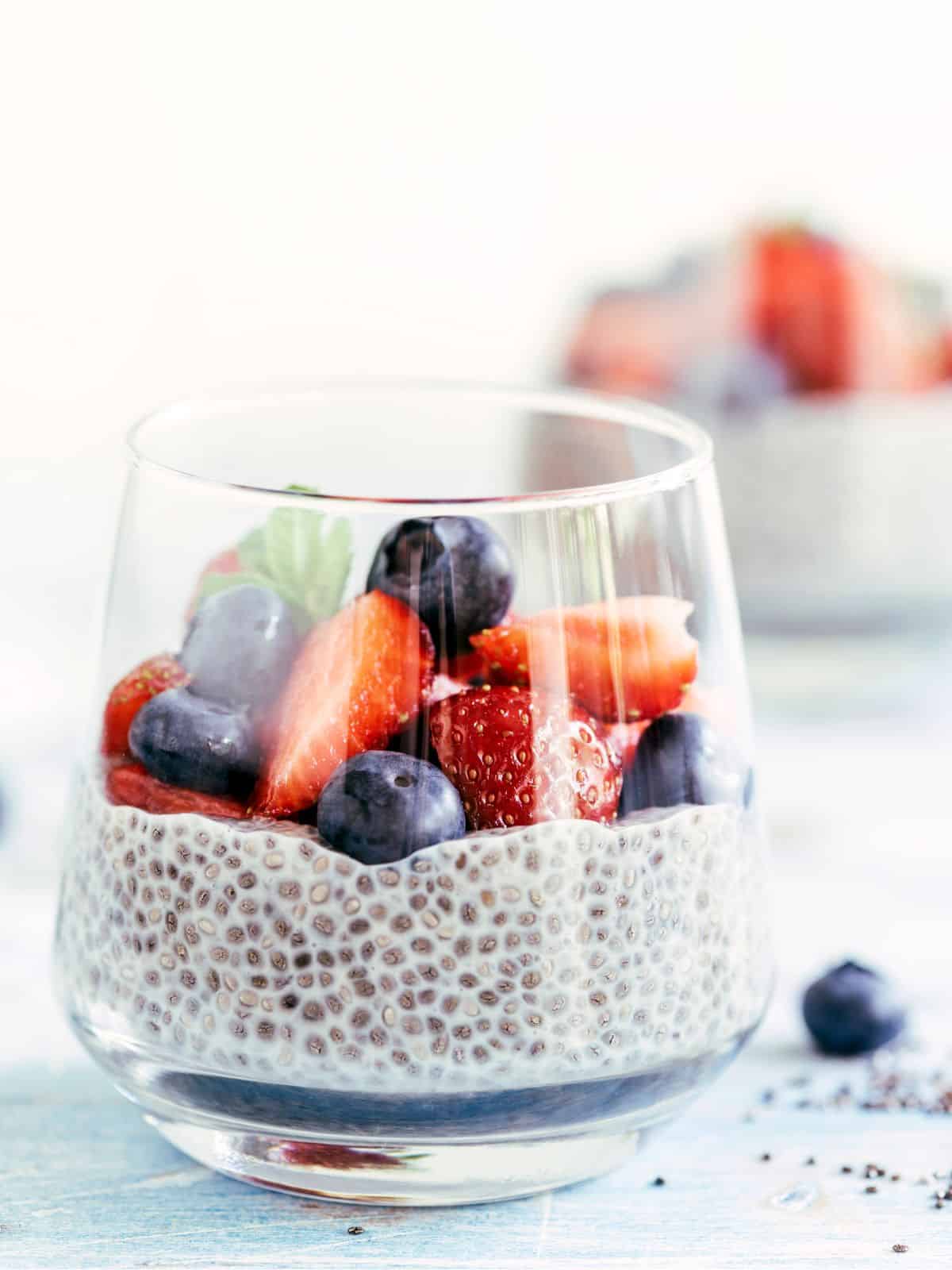
Can You Freeze Chia Seeds?
Yes, you can freeze chia seeds. If you have many chia seeds, you can freeze them. They will keep for up to 10 years! However, be sure that the container you keep the seeds in is dry and sealed from any excess air.
Rather than storing all of the chia seeds together, you can freeze them in smaller containers to use within the next few months. This will help keep you from opening the bag and letting in moisture or air.
It’s important to note that if the frozen chia seeds come in contact with frozen water, it will cause the seeds to react and swell. If this happens, the seeds will gel, and you won’t be able to use them.
Possible Side Effects of Eating Bad Chia Seeds
Consuming chia seeds past their expiration date isn’t necessarily going to make you feel sick as long as they don’t show signs of spoilage. However, if you eat the seeds after they’ve spoiled, you may feel sick and experience other symptoms of food poisoning.
There are a few risks to consuming too many chia seeds over an extended period.
If you consume 2 teaspoons or more of chia seeds daily over an extended time, you risk causing gastrointestinal problems, low blood pressure, or blood thinning.
If you experience an allergic reaction, although rare, you must stop intake immediately.
Chia seeds can react adversely to blood pressure or diabetes medications. If you are on these medications, consult your doctor before adding them to your diet.
FAQS
They are rich in antioxidants that may reduce free radicals, a good source of fiber for heart health, bone-enhancing minerals, and omega-3 fatty acids that may reduce the risk of heart disease and inflammation.
Stir them into your morning yogurt, add them to your cereal or oats, or blend them with your morning smoothie. There are so many ways to use chia seeds to benefit your health.
Summary
Chia seeds are a versatile and nutrient-rich ingredient with numerous health benefits. It is excellent to use in a variety of foods. Their high concentration of antioxidants helps to prolong their shelf life. Be sure to follow a few simple steps to extend the shelf life of your fresh chia seeds, such as storing them in a glass jar in a cool, dark, and dry place. Be sure to toss them if you notice any signs of spoilage.
Chia Seed Recipes!
Please comment below if you found this article helpful or have any additional questions. You can also follow me on Instagram, Pinterest, and Facebook for more family-friendly vegan recipes!


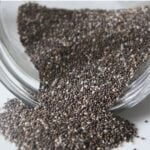
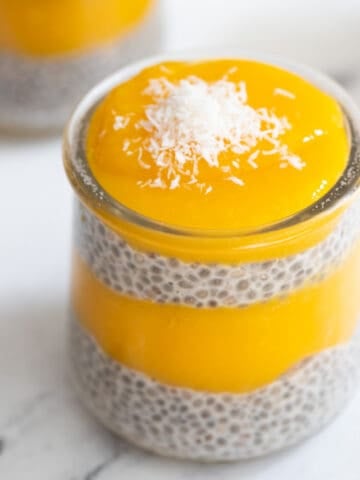
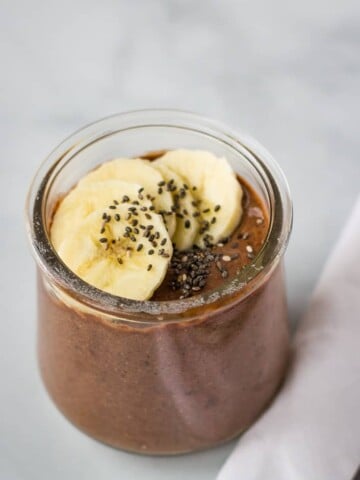
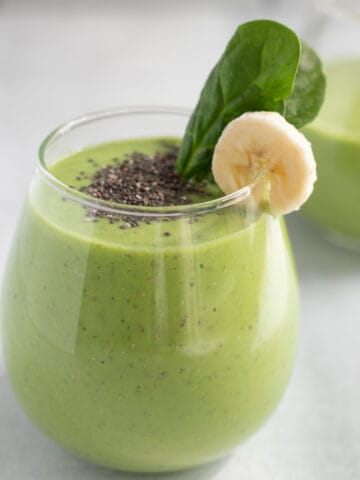
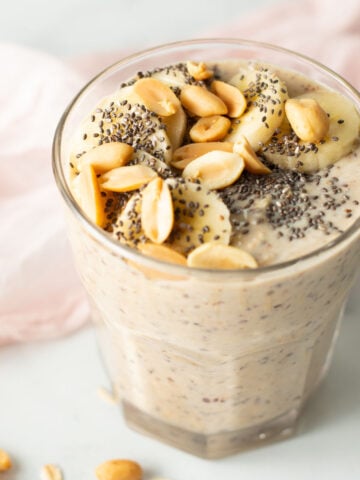
Leave a Reply